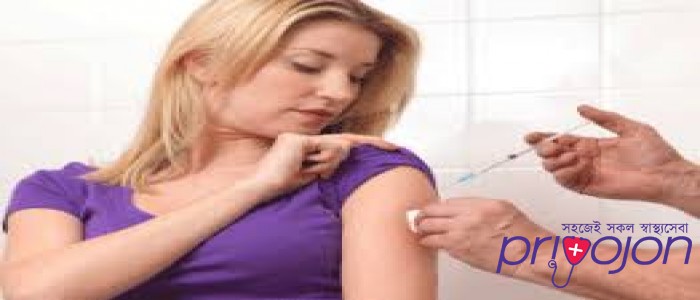
Overview
Medically reviewed by Dr. Rabeya Afroz Shomi
What is Vaccine?
Vaccines are medical preparations given to help the body produce immunity or to fight disease.
You can get vaccinated for many common infections such as :
- Influenza
- Hepatitis A
- Hepatitis B
- Human papillomavirus (HPV)
- Streptococcus pneumococcal pneumonia
- Pertussis (whooping cough)
To see which vaccinations you should get,
How are vaccines tested for safety?
Every licensed and recommended vaccine goes through years of safety testing including:
- Testing and evaluation of the vaccine before it’s licensed by the Food and Drug Administration (FDA) and recommended for use by the Centers for Disease Control and Prevention (CDC)
- Monitoring the vaccine’s safety after it is recommended for infants, children, or adults
Vaccines are tested before they’re recommended for use
Before a vaccine is ever recommended for useit’s tested in labs. This process can take several years. FDA uses the information from these tests to decide whether to test the vaccine with people.
During a clinical trial, a vaccine is tested on people who volunteer to get vaccinated. Clinical trials start with 20 to 100 volunteers, but eventually include thousands of volunteers. These tests take several years and answer important questions like:
- Is the vaccine safe?
- What dose (amount) works best?
- How does the immune system react to it?
Throughout the process, FDA works closely with the company producing the vaccine to evaluate the vaccine’s safety and effectiveness. All safety concerns must be addressed before FDA licenses a vaccine.
Every batch of vaccines is tested for quality and safety
Once a vaccine is approved, it continues to be tested. The company that makes the vaccine tests batches to make sure the vaccine is:
- Potent (It works like it’s supposed to)
- Pure (Certain ingredients used during production have been removed)
- Sterile (It doesn’t have any outside germs)
FDA reviews the results of these tests and inspects the factories where the vaccine is made. This helps make sure the vaccines meet standards for both quality and safety.
Vaccines are monitored after they’re recommended to the public
Once a vaccine is licensed and recommended for use, FDA, CDC, and other federal agencies continue to monitor its safety.
